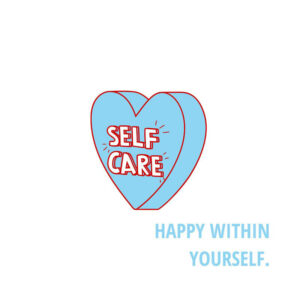Happiness in not a state that we can demand. We cannot decide to ‘be happy’; it is a by-product of doing life well. Doing life with meaning. It’s not a matter of ‘I’m going to be happy today’; it is ‘I’m going to achieve happy’.
A state of contentment and happiness comes from learning, growing, building, creating and loving. So many people sit idle, complaining that they are not happy. Why would we be happy if we are not building our lives? If we are simply treading water? Happiness is not an endpoint. If we expect to just be happy, research has shown that we are more likely to be depressed, anxious and lonely.
A strange analogy … if we want to warm our body temperature, we move our body – we exercise. We can’t just sit there and say, ‘I want my body to be warm, I want it to just happen spontaneously, I demand it.’ Our doing creates the body warmth; that is our responsibility. So too with happiness: it is our doing, our living that creates our ‘happy’. Clients come into my psychology practice saying, ‘I’m not happy’. They do not like my response of, ‘Well why would you be? You are not living. Let’s start living.’
This idea that I ought to be happy – expressed like a demand – is a dangerous idea. It’s as if we receive ‘happy’ from the universe rather than create our conditions to experience joy. This seems to be a contemporary disease in Western society: a sense that we’re entitled to be happy and a fear of sadness. We actually become anxious because we have an expectation that we should just be happy, and if we are not, we feel as if we are missing out. Happiness has not been delivered to us on a platter. Happiness could equally be called ‘wholeness’. We must create this wholeness.
happiness = wholeness
It is within most people’s power, regardless of their circumstances, to decide to become happier, rather than living on autopilot. So many people walk around with a sense of meaninglessness. They seem half-asleep, even when they’re busy doing things they think are important.
Rather than chasing dissolving distractions (like a busy daily fluster or a focus on image and status), the way you get meaning into your life is to devote yourself to loving others, your community around you, and to creating something that gives you purpose. It is not what is happening in our lives, but our interpretation of our life circumstances that leads to our happiness. We as individuals need to privately learn to control our inner experiences to determine the quality of our lives.
8 traits of happy people
Happy people:
- lead vigorous lives
- they are open to a variety of experiences
- they keep on learning until the day they die
- they have strong ties and commitments to other people and to the environment in which they live
- they find enjoyment in whatever they do, even if it is difficult or tedious
- they are rarely bored
- they can work with anything that comes their way – they can take it in their stride
- their degree of adaptability is their greatest strength
Extraordinary benefits of being happy
- Happier people live longer.
- Happier people have fewer health problems.
- Positive emotions protect us and lessen the effects of aging.
- Happier people have better health habits and immune systems, and lower blood pressure.
- Happier people are significantly more satisfied with their jobs, and have more productivity.
- Happier people have higher income and more gainful employment.
- Happier people endure pain better.
- Happier people are expansive and creative in their mindset when faced with a life challenge.
- Their positive feelings facilitate optimal functioning at interpersonal, intellectual and physical levels.
Happiness is the lovely side-effect of living well. It is living well that needs to be our focus and our responsibility, not happiness.



Subscribe To Our Newsletter
Join our mailing list to receive Psych wisdom, advice and encouragement once a month.
"The Skills we need are not just common sense, we need to learn them from somewhere"
You have Successfully Subscribed!